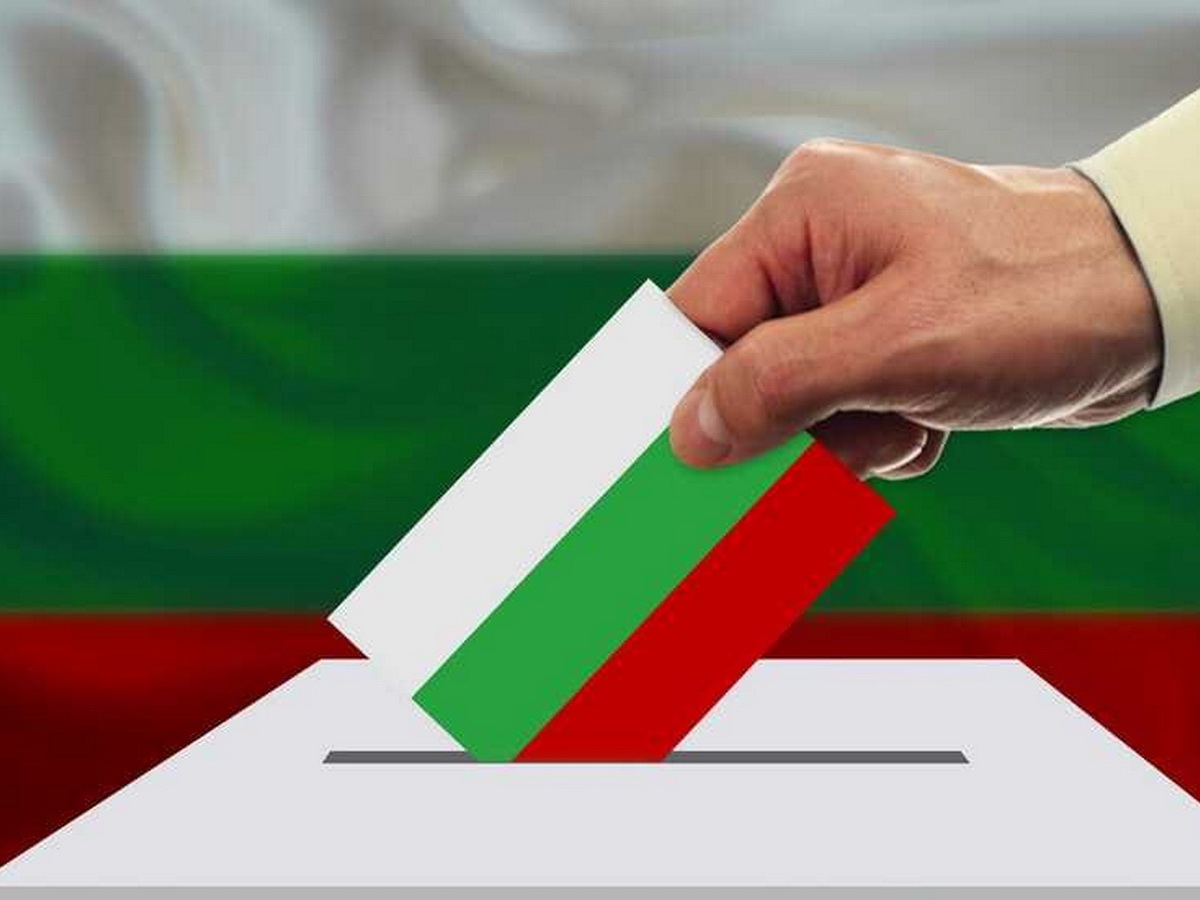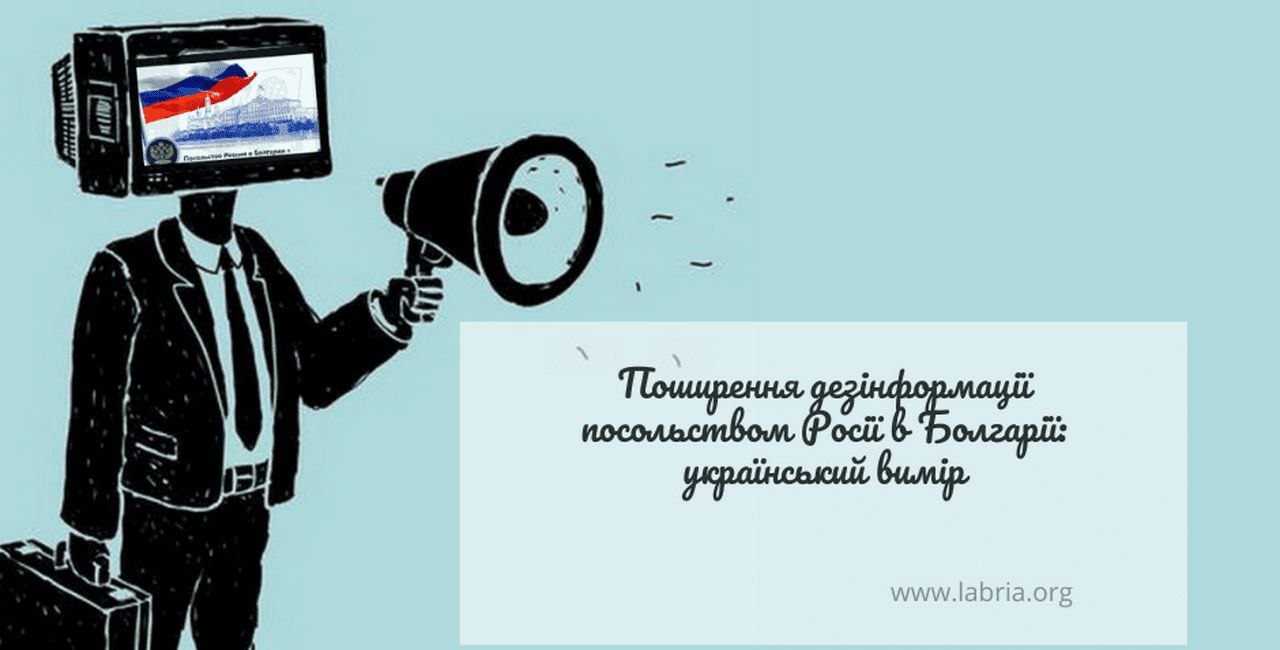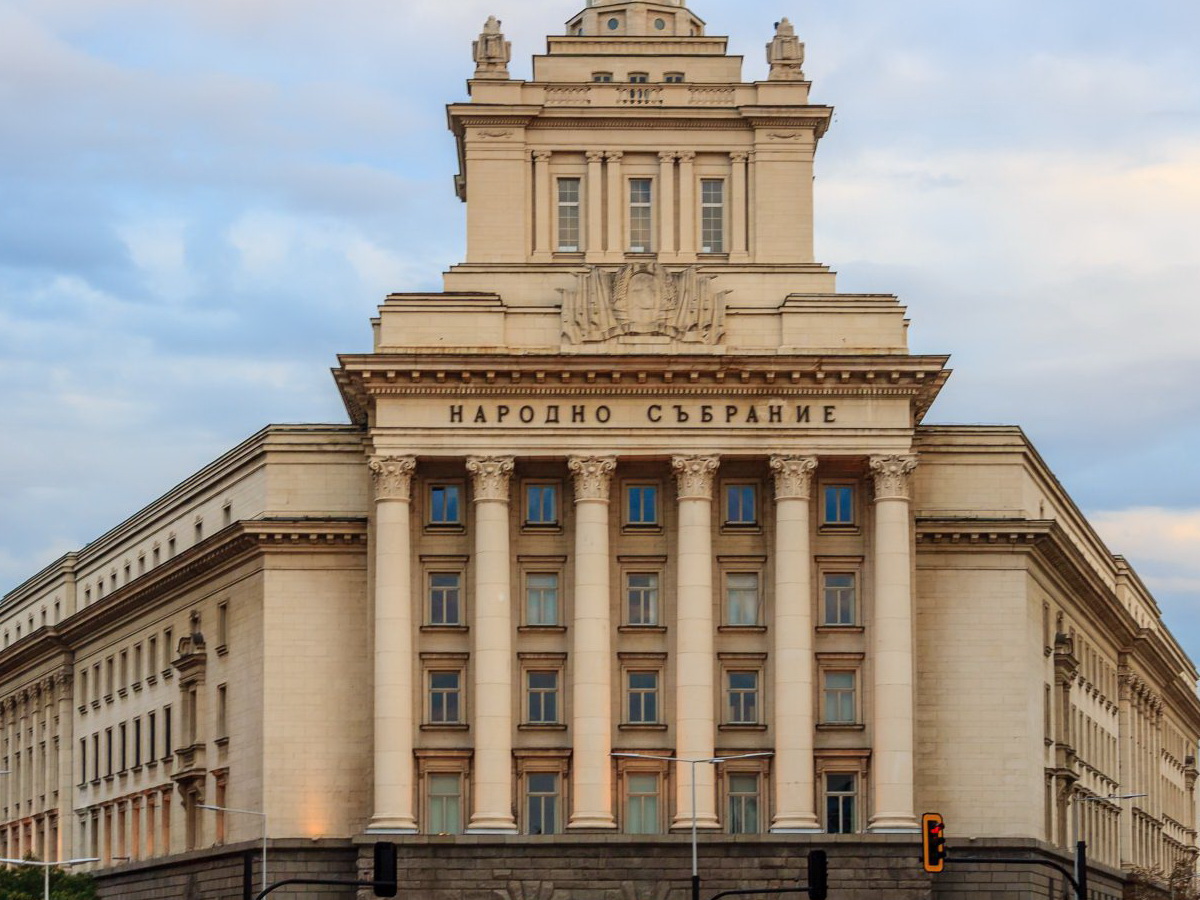
On June 27, 2024, Bulgaria held parliamentary elections three days ago, trying to alleviate the severe political crisis. The results of the remaining voting demonstrate the absence of clear prospects until the formation of a stable order of power and the emergence of a gradual fragmentation of the political landscape of Bulgaria on political forces with few representations in the legislative body of the country.
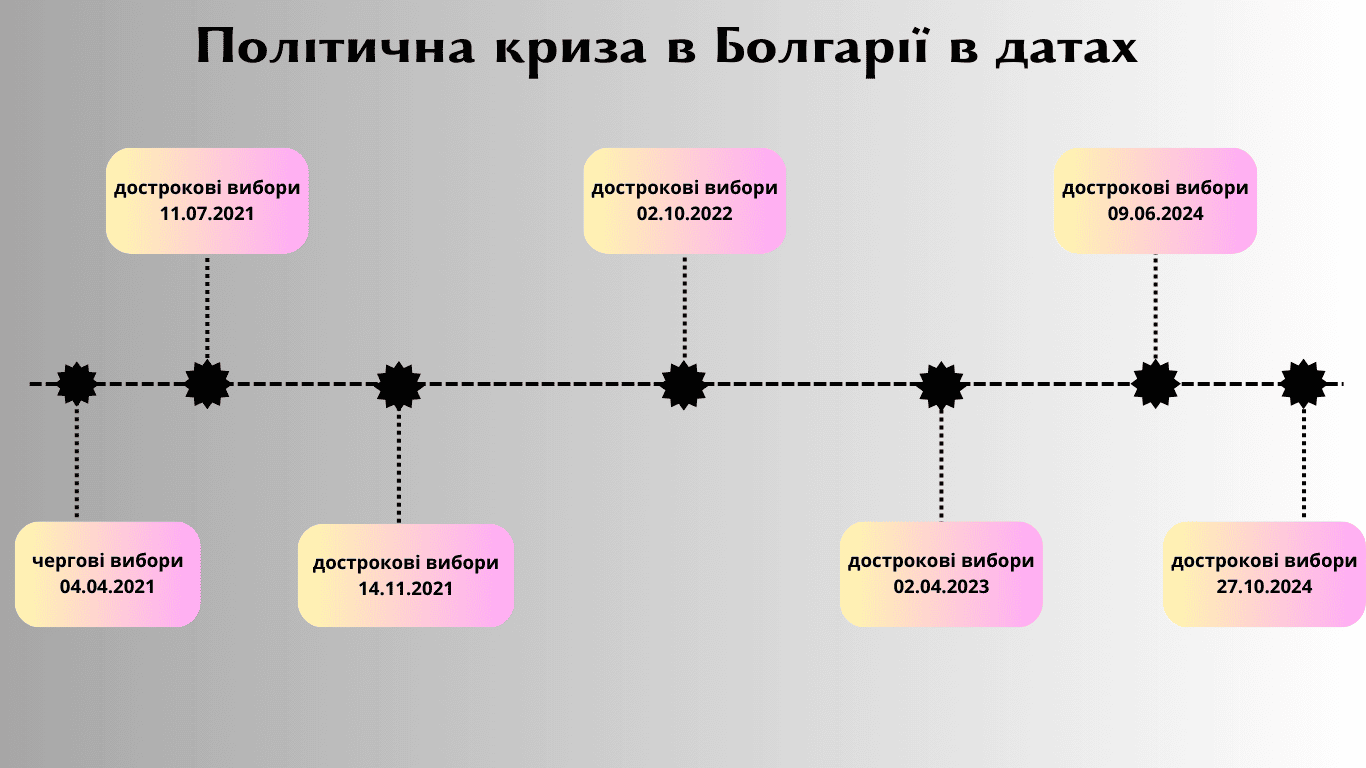
The 31st edition of the Bulgarian Central Election Commission announced the list of elected deputies up to the 51st People's Assembly elections in Bulgaria, which included 8 parties and associations - GERB-SDS, PP-DB, Vidrodzhennia, fragments of the large pro-Turkish party Rukh for Rights and Freedom (RPS) - “RPS - New Obediannia” on together with the media oligarch Delyan Peevski and the Alliance for Rights and Freedom (“APS”, part of the DPS under the control of the party leader Ahmed Dogan), the Bulgarian Socialist Party, and such people and the “Sword” party.
After the announcement of the official results, it became It was realized that 21 votes did not reach the pro-Russian nationalist party “Greatness” to pass to parliament (reducing 3.999% of the margin). Its leader, Ivelin Mikhailov, declared about falsification and went to the Constitutional Court in order to create a reversal of votes.
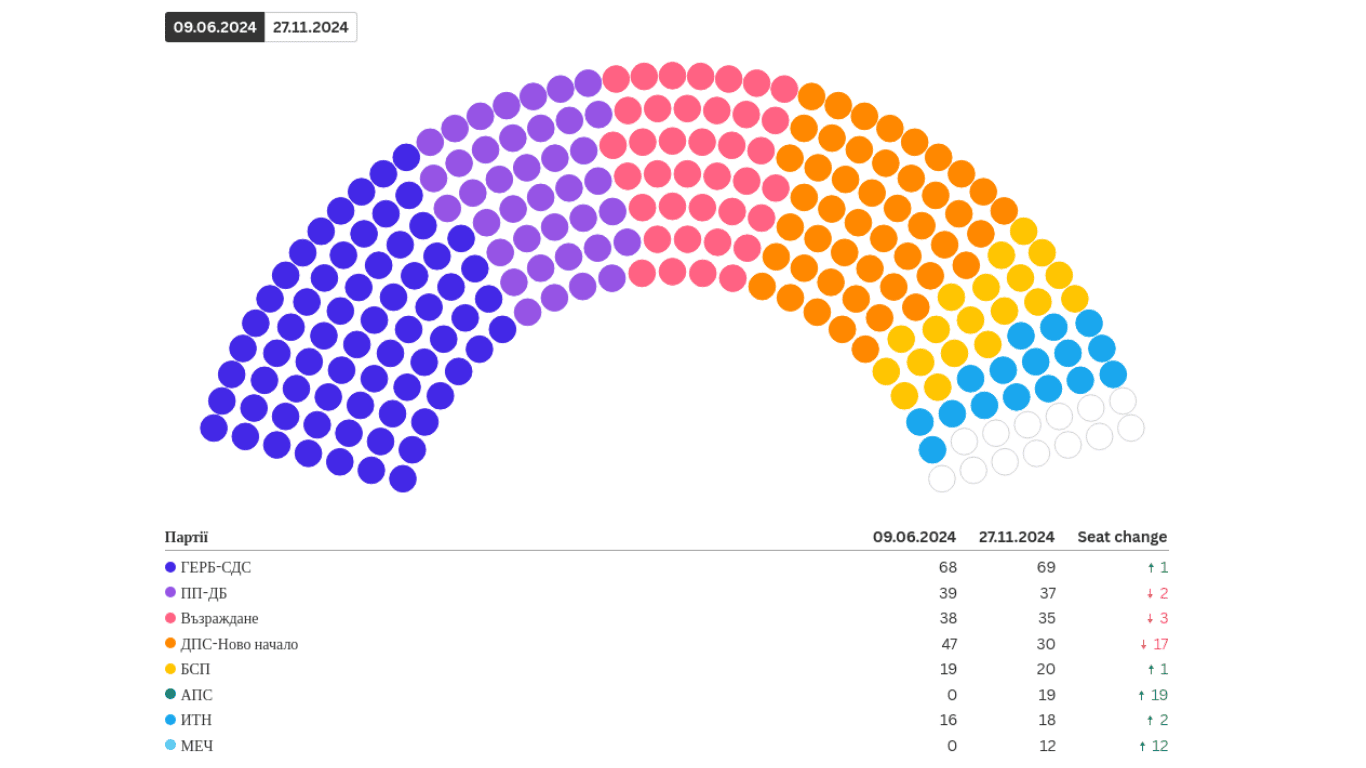
Leadership in terms of the number of canceled mandates in the 51st seat of the People's Assembly of Bulgaria was retained by the party of former Prime Minister Boyko Borisov - the GERB-SDS coalition. Throughout the entire cycle of political crisis, Boyko Borisov and his team managed not to waste their election, leaving the 69th parliament in the new warehouse. This political force itself is incredibly aware of the first news of negotiations about the unification of a parliamentary coalition and the formation of a new order. It is clear that the formation of a permanent order requires 121 votes.
The Bulgarian political landscape is becoming increasingly fragmented, as evidenced by the results of recent elections. Against the backdrop of the growing popularity of populist and radical parties, the “Revival” movement, systemic parties, which have recently entered the fold of coalition orders, are losing power to the electorate through socio-economic nutrition and corruption.
Okrema, in 2022 pro-European political forces will continue to change and Democratic Bulgaria has a total of 73 seats in parliament, and the results of the remaining elections in 2024 will follow The PP-DB coalition took away more than 37 parliamentary seats.
Likewise, the pro-Turkish Rukh party for rights and freedom did not withstand the onslaught of the Bulgarian media tycoon Delyan Peevski and split into two fragments of the RPS - the New Union under the control of Delyan Peevski and the Alliance for Rights and Freedom under the actual control of Ahmed Dogan.</p >
Bulgarian socialists are gradually losing their electorate, including through permanent party politics. At the last summer elections, the BSP received low results, as a result of which the great leader Cornelia Ninova was seen as a political force and was excluded from the party. The merger of the BSP with the “Levitsa” party of Maya Manolova did not disappoint the socialists due to the low result.
Possible options for a parliamentary coalition
If GERB-SDS has a high chance of defeating the parliament, the coalition may require support for the Alliance for Rights and Freedoms (APR), which represents the Turkish minority. Such a union would allow the consolidation of only 88 of the 121 necessary mandates. From the achievements of the PP-DB parliamentary coalition, the three political forces have the necessary number of votes to form an order, however, such a coalition is limited by differences in anti-corruption policy and division of seats in the upcoming order, which has more than once become the reason for the disintegration of the GERB-SDS and PP-DB coalition.
Another option for GERB-SDS is to get the DPS “New beginning” on the side of Peevsky, although this party is unlikely to become an official member of the coalition. Their role may be played in the support of popular bills for consumption, if there is a shortage of votes, and the PP-DB categorically contradicts Peevsky. In the event that Delyan Peevsky does not know his “place in the sun” in the new parliament, he may join the opposition.
Position of the leading parliamentary parties of Bulgaria according to the formation order
- Even before the elections, the head of GERB-SDS, Boyko Borisov, voted in a video on his page on Facebook< /a>: “I guarantee that the COAT OF ARMS will be created as quickly as possible, to formulate the order, “to restore stability and security” after the overwhelming victory of GERB-SDS. Borisov noted that “the proposal of the PP-DB, like the equally distant Prime Minister, is a replacement for the popular vote.” Zhoden Bulgarian today did not vote for anyone whose name we don’t know,” but GERB-SDS is still deprived of recognition and is forced to inform all parties, except “Vazrazhdane,” to form an order. GERB-SDS does not care about anything, but promotes connections with Delyan Peevskiy, obviously through hidden economic and political benefits for both political groups.
- PP-DB, from your side, even before The elections relied on the equally distant Prime Minister, who could unite political parties and without preemption to any political force to promote the situation, pleasant, The equal and independent politics, as well as the PP-DB, have made it clear that they will not encourage the current speaker of parliament and vice-presidents before all parties sign declarations on the establishment “sanitary cordon” around Peevsky to avoid the stench They did not disagree with him, after the National Party of PP-DB stated that they would not change their position until the minds of the negotiations in the new parliament. After the news, it became clear that if there was no support for the “cordon sanitaire” around Delyan Peevsky’s new party “DPS – New Beginning”, there would be no possibility of discussion until the speaker of the National Assembly Other upcoming negotiations to formulate an order.
- Having his own Chergu, scratching the head of the leading political party “Alliance for Rights and Freedoms” Ahmed Dogan telling the Bulgarian National television station, which supports the tandem between GERB-SDS and PP-DB. However, it does not exclude the possibility of obtaining any other forms, besides the pro-Russian “Vazrazhdana”. The APS also maintains a “cordon sanitaire” around its largest member and party member - Delyan Peevsky.
The main problem at the moment for the coalition between GERB-SDS, PP-DB and the “Alliance for Rights and Freedoms” is Delyan Peevsky, the leader of the DPS “New Beginning”, due to the statements and positions of the opposition parties Delyan Peevsky’s head is concerned with his policy of the so-called “deep state” or “Deep powers”, through their actions, are trying to persuade the Keruvati power because of the Lashtunks, often bypassing formal political and legal norms. Through widespread corruption in Bulgarian politics and business, as well as through the influx of tainted intelligence services, and the emergence of rich oligarchic structures.
All these problems and complex processes began after Bulgaria's transition to democracy after the fall of communism in 1989, thus creating a change of mind and laying the foundation for the current political crisis in Bulgaria, as we are aware of today. The political leaders and groups that established themselves in the Bulgarian political system after 1989 are not afraid to compromise their interests in the interests of the stability, development and well-being of the Bulgarian state, They stink in ways such as manipulation of elections, control over snakes, their influence on the formation of a huge thought and manipulation of the information space, they are trying to accept and praise unimportant for the promotion of a decision, create something go ahead for government reforms in order to protect your vital interests and resist changes that can improve your position and opportunities for a turbo-free life.
The election results indicate weak prospects for the formation of a stable order. Since the 51st National Assembly of Bulgaria will not be able to reach the coalition, the country is likely to face new elections in the spring of 2025. This will bring to a standstill strategic decisions, such as accession to Schengen, transition to the Euro and reforms. The minority cabinet is too fragile, and one “ill” deputy could endanger important decisions for the functioning of the Bulgarian state.
author: Mikhailo Panayotov

